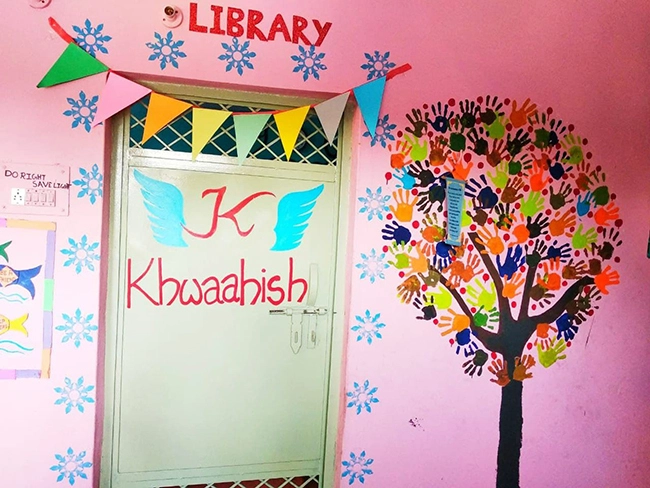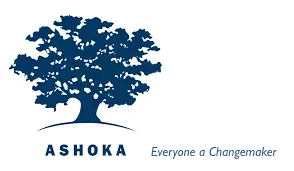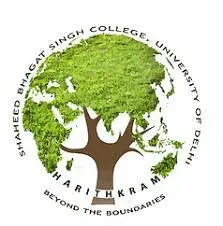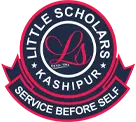Socio-Cultural Development
Socio – Cultural Development
The burgeoning youth of India makes our nation one of the youngest countries in the world. No wonder, there is talk of India's 'Demographic Dividend' and if channelled right during their formative years, these Change-makers can start contributing to society quite early on by involving its students in home grown projects/schemes like SETU, Open Arms Project, Model United Nations Environment Assembly to name just a few.
These initiatives are not only about making life better for the marginalised, the less fortunate and the physically challenged, but also seek to answer burning topical questions of climate and environment. Of course, it's a quid pro quo. While tentative steps to bring positive changes in society are introduced with students' active participation in socio-economic and environmental causes, the former too learn traits like team work and leadership, making them evolve into responsible and aware citizens of the country.
The open ARMS Project – Inclusive Education
The journey to becoming an Inclusive School may be long and challenging at times, but ultimately this journey can strengthen a school community and benefit ALL children. "Inclusion" does not simply mean the placement of students with disabilities in general education classes. This process must incorporate fundamental change in the way a school community supports and addresses the individual needs of each child. In 2018, Little Scholars incorporated ‘The open ARMS project after a pilot project carried out by their own students in collaboration with JSR Indu Samiti; a Residential School for the Specially Abled of creating a space within its curriculum planner which has now collaborated with other NGO’s and schools. As such, effective models of inclusive education not only benefit students with disabilities, but also create an environment in which every student; including those who do not have disabilities, has the opportunity to flourish.
One of the most important principles of inclusive education is that no two learners are alike, and so inclusive schools place great importance on creating opportunities for students to learn and be assessed in a variety of ways. Teachers therefore must consider a wide range of learning modalities (visual, auditory, kinaesthetic, etc.) in designing instruction and help diversify the educational experience of the students.
JSR Indu Samiti

School dedicated to PWDs is divided into three departments.
i. Educational: Special Educators specialized in the respective fields along with volunteers and part time physiotherapists, speech therapists and care takers provides a healthy learning environment to differently abled children belonging to the categories of Mental Retardation, Hearing Impaired, Visually Impaired and Physically disabled.
ii. Residential: Residential facility along with healthy meals is provided to the students. Daily extra-curricular activities are designed by Hostel warden to keep the students fresh and shining all the time.
iii. Vocational Training: Vocational training is provided to the students to make them self reliant. Skill centre at JSR have Computer lab, Sewing and Tailoring Lab, Electronics Lab, Sanitary and Plubming Lab, Beauty Parlour cum Salon, Candle Making Lab and Sweater Machine Room wherein the students are trained in works with respect to their interest.
Khwahish NGO

Khwahish is a humble effort by students and teachers to sow the seeds of primary education among the children as well as adults. Some of the students attend schools while some others are housewives or daily wage earners. The aim is to motivate people to come forward and share their valuable time and knowledge with these educationally malnourished sections. These souls appreciate even half an hour of your time.Though there's nothing more important than your knowledge, but donations too are necessary .Be a philanthropist by donating your time or money.
Apart from this, khwahish works for the animal welfare and have rescued more than 1000 stray animals till date. Visiting hours 4-6 pm.
Lepers Colony
Clubs - Internationalism
IIMUN




I.I.M.U.N. is one of the world’s largest youth-run organisation that aims to bring the world closer. It empowers the youth by enabling them to solve global problems at an individual level. Every student who participates at any I.I.M.U.N. Chapter conference follows a 3-step appraoch :-
Comprehend* - Discuss agenda through video and face-to-face tutorials.
Congregate* -Debate possible solutions of each simulation.
Create- Execute an IIMUN actionable goal and get rewarded with a certificate.
Events
National
International
Championship
LITTLE SCHOLARS joined IIMUN in 2016 and our delegates have contributed extremely well and have won numerous accolades.
ACHIEVEMENTS
National
Little scholars grabbed school trophy, for consecutive two years at Kashipur chapter 2016 and 2017.
Besides this it won the School trophy in Moradabad chapter 2017
International
In 2022 Little Scholars took part in the BEST MUN conference, in Saudi Arabia and won the title of Best Delegate.
Championship
By getting high commendation, special mention, verbal mention and Best Delegate, our scholars also proved themselves in Championship conference which was held in Mumbai.
Ashoka Changemaker Day

Little Scholars, Kashipur, and Ashoka Innovators collaborated to conduct Changemaker Day on Jan 23rd,Saturday to promote the idea of “Everyone A Changemaker.”
Seven schools were a part of the event and, a total of 143 participants were present.
The event began with a presentation by Ms. Preethi Ramachandran, the coordinator from Ashoka. She elaborated on the Ashoka Young Changemakers community and introduced the two guest speakers for the day; Mr. Mathew Jose, the founder of Paperman, and Mr. Hitarth Seth, the founder of Buddhiman and Gujju Student.
They spoke about their journey as a changemaker, which followed an idea pitching event by the students. Some honorable mentions are Quenching the thirst of Animals by Gargi, Applied Learning Program by Prabhleen, and The Open Arms Project by Prisha. The participants received constructive feedback from the speakers at the end of their presentation. The next event was a Q & A round, where the students asked relevant questions to the speakers through the chatbox. The speakers answered them with precision and expertise that perhaps was a result of their intense experience.
The event ended on a positive note. The atmosphere was of learning and development.
Harithkram

The students of Little Scholars Kashipur have always been in the forefront so far as ‘Environmental Awareness’ is concerned, making climate issues occupy centrestage with their enthusiastic participation in such activities.
The same zeal was on display when Auli Arora, Parth Garg and PrishaBhalla represented the school in the three-day youth conference organized by Harithkram, the Environment Society of Shaheed Bhagat Singh College, Delhi.
The School Student Conference (SSC) by DUSF under its School Outreach Programme saw not only the coming together of Harithkram’s two flagship events — Delhi University Sustainability Forum (DUSF’20) and Harithkram Model United Nations Environment Assembly (HUMNEA’21), but also intense brainstorming, powerful debates and ardent discussions among youngsters from different schools.
The participants of LS impressed one and all with their views and the school was one of the seven shortlisted schools going to the next round.
Not only this, the children made it a moment to be savoured by the school when Little Scholars Kashipur was declared joint runners-up along with GHHS Edavilangu, Thrissur, Kerala.
We look forward to more such laurels from our talented bunch of children.
IIMUN Championship Conference - 2024
Little Scholars Model United Nations (MUN) Journey
The Model United Nations (MUN) journey at school Little Scholars likely began in 2017 with pioneering teachers Ms. Anju Singal and Ms. Annanya Tiwari who saw the value in simulating international diplomacy for students. Since then, it has likely grown to become a platform for students to develop skills in research, public speaking, negotiation, and critical thinking while exploring global issues.
Winning 6 times The Best School Delegation Trophy from 2017 is an impressive achievement! It speaks volumes about the dedication, preparation, and talent of both the students and the teacher advisors involved in the MUN program.
Winning awards or achieving significant recognition at IIMUN championship conference in Mumbai is undoubtedly a remarkable feat.





About IIMUN
- I.I.M.U.N. is the world’s largest youth-run non-profit organization.
- I.I.M.U.N.'s vision is to unite the world, the Indian way by sensitizing tomorrow’s leaders, today.
- I.I.M.U.N. aims to empower the youth to start taking initiatives in combating global problems on an individual level.
- The idea is to move from a classroom discussion to creating tangible change, an attempt at making this a borderless world.


Details of the IIMUN Championship Conference 2024
Conference Itinerary
| Date | Event | Dress Code |
|---|---|---|
| Wednesday, 14th August, 2024 | 16:00 hours - Departure From Kashipur / Ramnagar | White T-shirt, Blue jeans |
| 23:00 hours - Reaching Delhi Airport | ||
| Thursday, 15th August, 2024 | 07:00 hours - 11:00 hours - Arrive in Mumbai/Pune City | Indian Traditional |
| 07:00 hours - 11:00 hours - Groups will depart in batches of 40 for Aamby Valley City | ||
| 12:00 hours - 16:00 hours - Check-in | ||
| 16:00 hours - 17:00 hours - High Tea | ||
| 17:00 hours - 20:00 hours - Opening Ceremony | ||
| 20:00 hours - 22:00 hours - Dinner + Socials | ||
| Friday, 16th August, 2024 | 06:30 hours - 08:00 hours - Sports | Western Formals |
| 08:00 hours - 09:00 hours - Breakfast | ||
| 09:30 hours - 12:30 hours - Committee Session I | ||
| 12:30 hours - 13:30 hours - Lunch | ||
| 13:30 hours - 16:00 hours - Committee Session II | ||
| 16:00 hours - 16:30 hours - High Tea | ||
| 16:30 hours - 18:00 hours - Committee Session III | ||
| 18:00 hours - 20:00 hours – MUN Clave Speaker Series | ||
| 20:00 hours - 21:30 hours - Dinner + Social | ||
| 21:30 hours - 23:00 hours - Social | ||
| 00:00 hours - 02:00 hours - Midnight Crisis Committee | ||
| Saturday, 17th August, 2024 | 06:30 hours - 08:00 hours - Sports | Western Formals |
| 08:00 hours - 09:00 hours - Breakfast | ||
| 09:30 hours - 12:30 hours - Committee Session IV | ||
| 12:30 hours - 13:30 hours - Lunch | ||
| 13:30 hours - 16:00 hours - Committee Session V | ||
| 16:00 hours - 16:30 hours - High Tea | ||
| 16:30 hours - 18:00 hours - Committee Session VI | ||
| 18:00 hours - 20:00 hours – MUN Clave Speaker Series | ||
| 20:00 hours - 21:30 hours - Dinner + Socials | ||
| 21:30 hours - 23:00 hours – Socials | ||
| Sunday, 18th August, 2024 | 06:30 hours - 08:00 hours - Sports | Western Formals |
| 08:00 hours - 09:00 hours - Breakfast | ||
| 09:30 hours - 12:30 hours - Committee Session VII | ||
| 12:30 hours - 15:00 hours Lunch + Closing Ceremony | ||
| 15:00 hours - 16:00 hours – Departure from Aamby Valley | ||
| 21:00 hours - Reaching Mumbai Airport | ||
| Monday, 19th August, 2024 | 04:00 hours - Reaching Delhi Airport | |
| 05:00 hours - Departure from Delhi Airport for Kashipur/Ramnagar | ||
| 14:00 hours - Reaching Ramnagar |
Fee and Inclusion (50000 INR)
- Conference Fee
- 3 Nights and 4 Days accommodation at Aamby Valley City
- All meals from dinner on 14th August, 2024 to Breakfast on 19th August 2024
- Pre-conference Live training & study material
- Delegate kit
- Entry to all Socials as per the itinerary
- Transport (to and fro) from Kashipur / Ramnagar to Delhi International Airport and Aamby Valley City
- Flight tickets (Delhi To Mumbai and Mumabi To Delhi)





